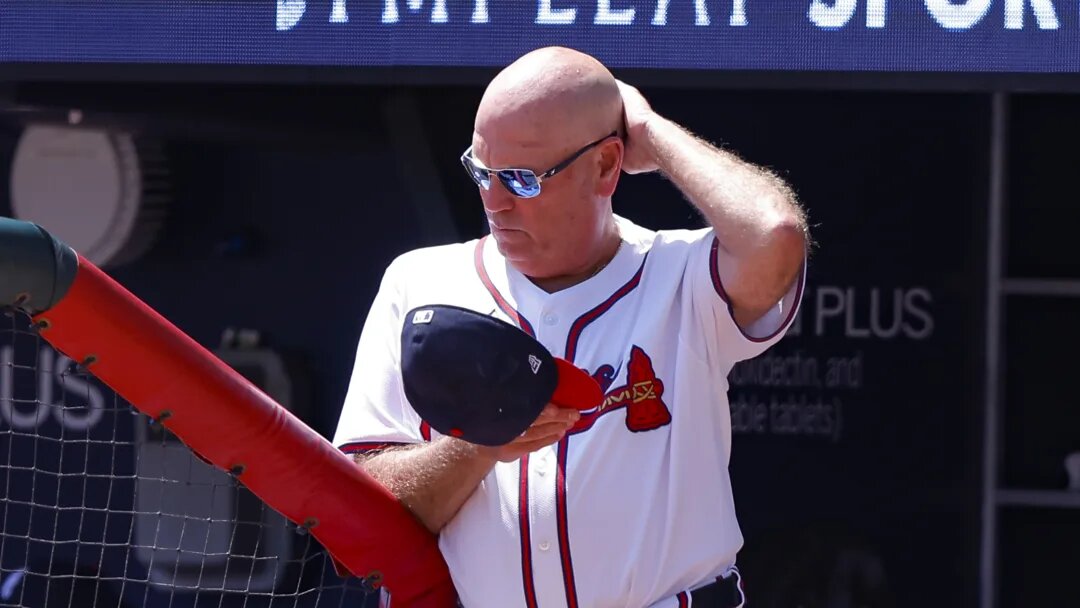The Atlanta Braves shattered any remaining hopes of winning the NL East, and they have only themselves to blame.

The Atlanta Braves approached their four-game series against the Philadelphia Phillies with confidence.
Despite trailing by five games in the National League East division, the Braves had recently swept the Minnesota Twins on the road and were one of the hottest teams in the majors. Philadelphia’s 10-game division advantage from July had dwindled dramatically. After winning 12 of their last 16 games, the Braves hoped to get within one game of the division lead by the end of their last series against the Phillies.
That did not happen, as the Braves won only one of their four games. The Phillies lead the NL East by seven games, and they appear to have destroyed the Braves’ dreams of earning their sixth consecutive division crown. The Phillies have a 95.9 percent chance of winning the division following the series, according to FanGraphs. With only a 3.3% probability of winning the division, Atlanta would need a miracle to keep the Phillies from claiming their first division title since 2011.
On Thursday, the Phillies came back from a four-run deficit to win 5-4 in the series opener. Atlanta won 7-2 in the second game, but their offense struggled in a 3-0 shutout on Saturday. The Phillies won 3-2 in extra innings on Sunday to complete the series.
Grant Holmes
In the series opener, Braves pitcher Grant Holmes tried to challenge Nick Castellanos with fastballs, and he gave up a two-run home run to give the Phillies the lead.
Holmes got the opportunity to extract retribution in the series finale on Sunday. Instead, he entered the series finale and sealed up the Phillies’ triumph. The Braves, tied 2-2 in the 11th inning, asked Holmes to face Castellanos again, this time with two outs and the winning run on third base. Holmes again fired a fastball, and he paid the price. Castellanos hit a game-winning single to secure the victory.
Manager Brian Snitker
There is plenty of blame to be distributed for Atlanta’s collapse, but no one deserves it more than Braves manager Brian Snitker. There were numerous questionable judgments made throughout the series, but many of them involved failing to eliminate a player when he should have.
For the third time this season, Braves pitcher Charlie Morton threw more than 100 pitches in Game 1. Snitker chose to keep him in. The Phillies’ right fielder Brandon Marsh then took his turn at bat. Marsh has struggled with left-handed pitchers this season, striking out 31 times in 74 plate appearances. The Braves had lefty Aaron Bummer warming up. Nonetheless, Snitker chose to keep Morton in. Of course, Marsh crushed Morton’s curveball over the fence for a three-run home run.
In the season finale, Snitker made the same mistake, this time keeping Spencer Schwellenbach in the game for too long. Schwellenbach started strong, but gave up a single to Trea Turner and a double to Bryce Harper. Snitker left the pitcher in place. Schwellenbach pitched a poor slider, allowing Castellanos to tie the game with a double.
The Braves offense
No single batter should be singled out in this particular instance. This position should go to the whole Braves offense. After being shut out in a 3-0 setback on Saturday, Atlanta once again failed to score when it counted the most.
Aaron Nola, the Phillies’ starting pitcher, struck out nine in six innings Sunday. Following that, Philadelphia’s bullpen relieved Nola and pitched five scoreless innings. The Phillies alternated Orion Kerkering, Jeff Hoffman, Matt Strahm, and closer Carlos Estévez through five shutout innings, leaving the Braves without the one run they needed.
Even when the Braves loaded the bases with one out against Strahm in the ninth, Orlando Arcia and Luke Williams were unable to capitalize. Estévez, who pitched two innings for the second time this season, left the Braves’ automatic runner stranded both times.